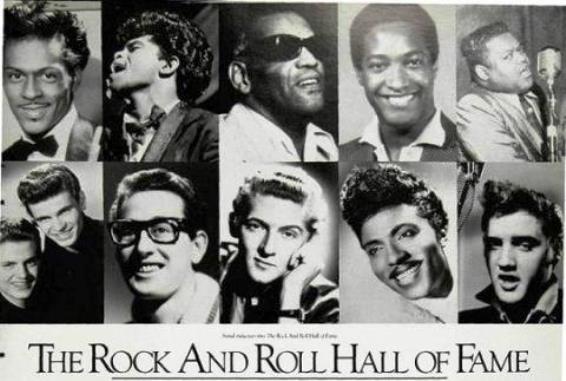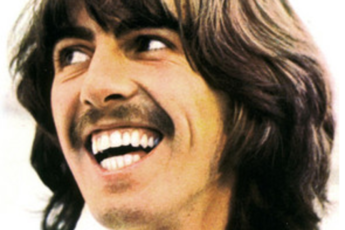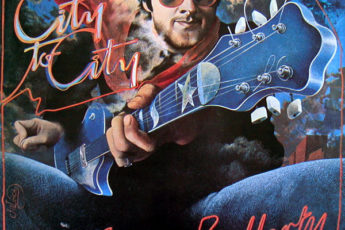Jann Wenner (the neckless goblin pictured above) was recently removed from the renowned organization he helped to create, the Rock & Roll Hall of Fame, following stupefying comments the Rolling Stone magazine founder made while promoting his new book, The Masters. Asked in a New York Times interview why he’d failed to include any black or female artists among those featured in the collection of in-depth interviews that make up the work, Wenner responded stating, in part, that “Insofar as the women, just none of them were as articulate enough on this intellectual level” while going on to say of black artists “They just didn’t articulate at that level,” remarks recalling nothing so much as Dodgers G.M. Al Campanis’ infamous 1987 reflection on the viability of minority managers in major league baseball (“They may not have some of the necessities”) and that will surely age every bit as gracefully.
Casting aside the baldly racist, misogynistic, and even dismissive tenor of his pronouncement – he dug his disgraceful hole yet deeper by adding “Maybe I should have gone and found one black and one woman artist to include here that didn’t measure up to the same historical standard, just to avert this kind of criticism” – there’s the inescapable irony, as well, of one so apparently fixated on the idea of being “articulate” while revealing himself to be such an abjectly inarticulate lout.
The Hall Wenner oversaw prior to his ghastly gaffe has long suffered from its own inability to communicate a cogent representation of its mission or membership. Though to be fair, it didn’t start out that way. Consider, for instance, the inaugural class of ten unassailable honorees, inducted on January 23, 1986: Chuck Berry, James Brown, Ray Charles, Sam Cooke, Fats Domino, the Everly Brothers, Buddy Holly, Jerry Lee Lewis, Little Richard, and Elvis Presley. Totemic, world-changing artists all (not to mention 60% black, Jann, you ignorant boor). The following two cohorts to be welcomed included Aretha Franklin and The Supremes as its first female inductees (suck it again, Wenner). And scores more eminently deserving landmark legends of rock and roll have, of course, followed.
The disheartening matter for the devoted music public, however, has been observing the ensuing clumsy dismantling of the illustrious benchmark with which The Hall was established (“Rock’s highest honor: these are the people who shaped the history of rock and roll” as is trumpeted on the website), while unavoidably being confronted with what the once esteemed institution clearly sees as its annual priority: the overriding need to promote a new batch of members each year over any consistent adherence to their historic worthiness (a practice seemingly spearheaded by the Rock Hall’s CEO, a former co-worker of mine who I’ll not name). As of 2022 the Rock & Roll Hall of Fame now contains exactly 365 inductees, a total that might fit neatly on a yearly calendar but is sadly bloated with months worth of unsupportable entries. Sorry, but there just are not that many real bedrocks of rock – a truth as self-evident as the missing neck atop Wenner’s apparently enfeebled backbone – and where Bon Jovi and Depeche Mode sit beside The Beatles and Rolling Stones as peers, you’ve lost me. (The current year’s nominee finalists included The White Stripes…AYFKM). Further, until such time as the organization opts to revise its title to a more inclusive collective – say, The Popular Music Hall of Fame – it remains confusing, at best, and more often outright infuriating that a procession of artists have been proudly inducted whose musical genres objectively bear no resemblance to even the broadest interpretation of rock and roll.
But having said all that, here’s the most frustrating, even disturbing, part. Under the standards for inclusion by which The Hall has chosen to conduct their affairs, Warren Zevon is somehow not inducted; now eligible for 29 years, Zevon was finally among the 2023 nominees yet ultimately deemed undeserving while the likes of Missy Elliot and Kate Bush will get the nod in a ceremony to be held next month. Neither is Bad Company. Nor is the J. Geils Band. Really, J. Geils, how in hell can that be? And then there’s the one that tops my list of most unfathomable snubs: Jethro Tull. Yes, I know you don’t believe me because it would seem so painfully obvious, but no they are not in The Hall. After 30 years of eligibility, in fact, they have yet to even receive a nomination. I mean, what the actual fuck?!
Regarding the Ian Anderson-led English prog/folk rock legends, there’s got to be something I’m missing. Is it still remaining blowback from their dubious receipt of a 1989 Grammy for Best Hard Rock/Metal album (Crest of a Knave) outshining conspicuous favorites Metallica and Jane’s Addiction? Could there be confusion surrounding a band titled not for any member’s name but after an unremarkable 18th century agriculturist? Is The Hall tacitly averse to googly-eyed flautists balancing on one leg like a crazed flamingo while garbed dashingly in medieval tunics, tights and a codpiece? If not for these or some other similarly ludicrous rationale then, it’s literally impossible to believe that Jethro Tull is not in the Rock & Roll Hall of Fame. Like, as a blatantly clear-as-day choice. Seriously.
Oh, and it seems worth noting who was voted into The Hall in 2004, receiving the Ahmet Ertegun award, representative of “Non-performing industry professionals who, through their dedicated belief and support of artists and their music, have had a major influence on the creative development and growth of rock & roll and music that has impacted youth culture.” That was none other than Jann Wenner himself. Receiving an honor from the same organization which he ostensibly controlled. Stay classy, Jann, you arrogant prick. To borrow from the words of perennially spurned Jethro Tull, you’re truly thick as a brick.
(Frankly, this classic alone should be enough to qualify)












Bruce
October 3, 2023 9:40 pmInteresting article. But you’re wrong about The White Stripes. Jack White is a treasure.
So Much Great Music
October 3, 2023 9:59 pmI think many would disagree. But regardless, is Meg?
Phil
October 4, 2023 4:13 pmKing Crimson is a seminal group, cited as an influence by bands like Genesis, Yes, and Rush, who are already in the Hall of Fame. Insane that they aren’t in the Hall of Fame.